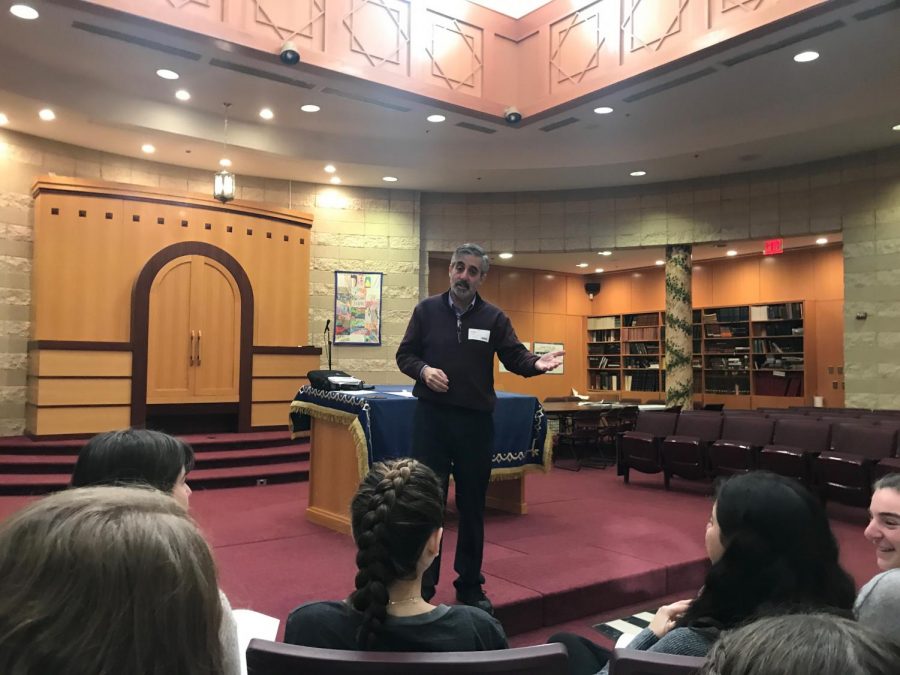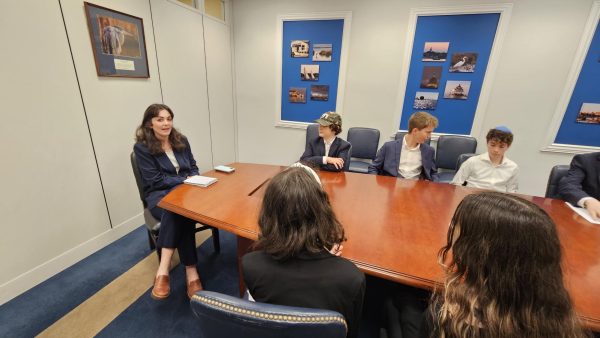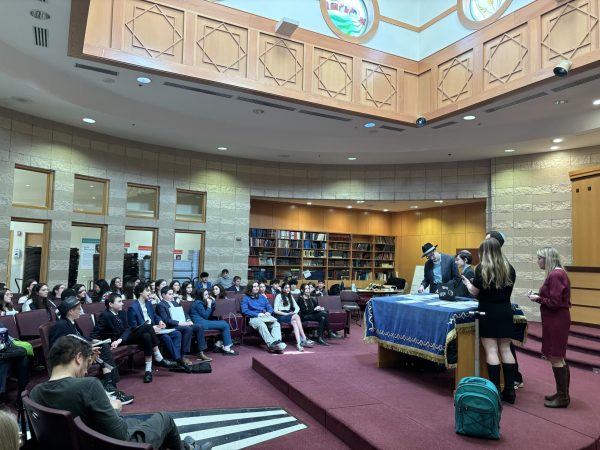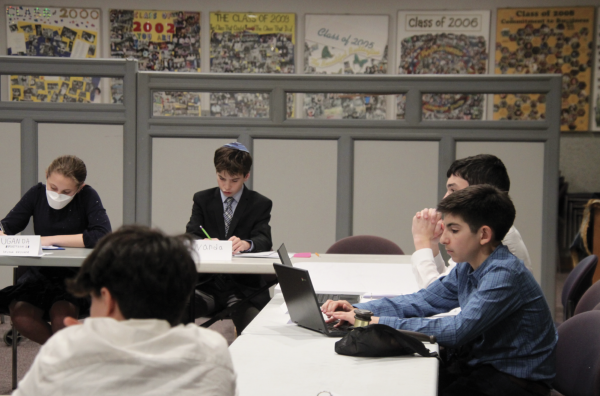Guest speaker returns to JDS for 25th time
Dr. Craig Futterman speaks to Jewish Text teacher Paul Blank’s Ethical Dilemmas class for the 25th year in a row.
March 6, 2019
Dr. Craig Futterman—whom Jewish Text teacher Paul Blank has been inviting to speak to freshman Ethical Dilemmas classes for a quarter of a century—recently returned on Feb. 27 and 28 to speak to the current students taking the class.
Futterman, a physician and pediatric cardiac intensive care specialist, has been practicing medicine for 31 years. His speeches connected his medical expertise to the Ethical Dilemmas curriculum.
The Ethical Dilemmas course is devoted to studying ethics, connecting Jewish texts and philosophy to explore topics such as abortion, capital punishment, and triage. Futterman’s seminar focused on the concept of triage, where doctors assess patients to determine who is at the highest priority for medical care. Futterman explained how the hypothetical triage dilemmas presented and studied in class occur in his profession.
Before Blank met Futterman, he had been searching for an emergency room doctor to provide the connection between the hypotheticals being studied and everyday life.
“I didn’t even know at the time that he was a triage doctor, or that he is involved in a lot of triage situations, so it was perfect,” Blank said.
Blank hopes that Futterman will help the students have a deeper understanding of triage and the ethics behind it.
“It takes it from the hypothetical to the real world,” Blank said.
Blank said he continues to invite Futterman back annually because Futterman’s seminar enhances the curriculum and students enjoy it.
Dr. Futterman’s ability to explain his triage dilemmas in an easy to understand and engaging way helped Freshman Shevi Lerner empathize with him and understand the difficulty of making them.
“It made me realize that these decisions are made every single day,” Lerner said. “I think it makes the triage unit more real and less hypothetical because in class if we just do hypotheticals every time, we don’t realize that this is something that happens on a daily basis for this doctor.”
To Futterman, educating students about triage is valuable because it teaches them about proper decision making. He hopes that his seminar will lead students to make a few better decisions.
“All of our decisions should be made the same way – with as much data and information as is possible. These examples are really drawn to show you that if you make a face value decision that you may not make the right decision because you’re not getting all of the data,” Futterman said. “If you had more information, you would do things differently.”


















